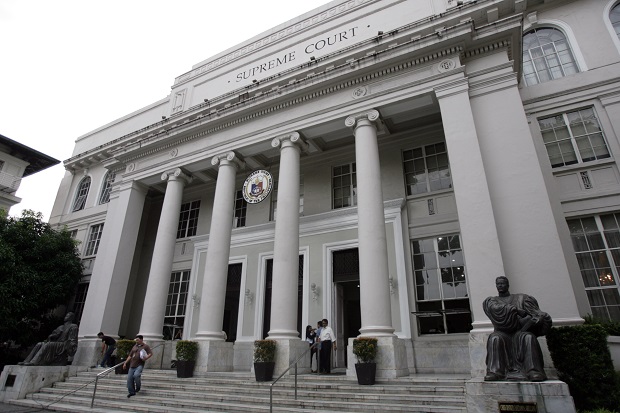SC defends judiciary funds again
MANILA, Philippines—The Supreme Court has defended anew the Judiciary Development Fund (JDF)—its version of a pork barrel—asserting its importance in augmenting the scant funds of the judicial branch, amid congressional moves to abolish the JDF.
This as the high tribunal dismissed a concerned citizen’s plea to compel Congress to keep its hands off the JDF, after tensions flared among the coequal branches of government following adverse Supreme Court rulings against the discretionary funds of the executive and legislative branches.
“The Judiciary Development Fund, which is used to augment the expenses of the judiciary, is regularly accounted for by this court on a quarterly basis. The financial reports are readily available on the Supreme Court’s website,” the tribunal said.
Not enough
It said the funding the judiciary received from the government was “still not enough to meet the expenses of the lower courts and guarantee the credible compensation of its personnel.”
Article continues after this advertisement“The reality is that halls of justice exist because we rely on the generosity of local government units which provide additional subsidies to our judges. If not, the budget for the construction, repair and rehabilitation of the halls of justice is with the Department of Justice,” the high court said.
Article continues after this advertisementThe tribunal defended the JDF as it dismissed a mandamus petition filed by a Rolly Mijares, saying he “had not shown any of the requisites for mandamus to issue.”
“The writ of mandamus will issue when the act sought to be performed is ministerial, i.e., it does not require the exercise of judgment. The court also found that petitioner has not shown how he is entitled to the relief,” read the summary of the ruling released on Thursday.
Abolish JDF
The petition for mandamus asked the Supreme Court to stop Congress from pursuing moves to abolish the JDF, an allocation provided for under a decree issued by the late dictator Ferdinand Marcos to augment personnel allowances and maintenance and acquisition funds of the judiciary.
Proposals to abolish the JDF are pending in Congress.
Acknowledging the “petitioner’s concern for the judiciary,” the court instead suggested that Mijares pursue his cause in Congress, saying the “courts are not constitutionally built to do political lobbying [nor] trained to produce a political statement or a media release.”
Mijares filed his petition on Aug. 27, 2014, through a letter addressed to Chief Justice Maria Lourdes Sereno and other magistrates, where he asked the court to “invoke [its] judicial independence and fiscal autonomy as mandated under the Constitution.”
Lawmakers, led by administration allies, rabidly opposed the JDF at the time, saying the fund was the judiciary’s own pork barrel, even as it issued back-to-back rulings nullifying Congress’ Priority Development Assistance Fund (PDAF) and Malacañang’s Disbursement Acceleration Program (DAP).
President Aquino himself expressed dismay over the high court’s striking down the DAP—the administration’s purported economic stimulus program—as unconstitutional, at one point saying he was open to amending the Constitution to keep the judiciary’s power in check.
